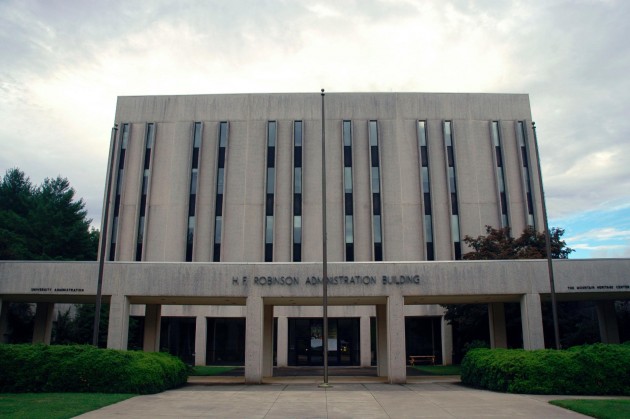
As part of its budgetary measures for the UNC-System’s 2012-13 academic year, the North Carolina State Legislature has made funds available to finance pay increases for all UNC-System employees.
The 1.2 percent pay increase is the first of its kind in four years but comes at a time when students across the state are being forced to pay higher tuition fees while relying on dwindling financial aid resources.
The state college education budget, approved by the General Assembly on June 21 and ratified by a UNC-System Board of Governors committee in August, has seen a good deal of cuts in recent years. These past and present cuts prompted Gov. Bev Purdue to originally veto the General Assembly’s approved budget, citing in a press release of the “Top 20 Budget Flaws” that their budget “Makes it harder for working families to send their children to college by cutting $16.4 million relative to the Governor’s budget for UNC need-based financial aid.” Her veto was overruled by the Republican majority in July.
The budget does, however, make available a 1.2 percent salary increase for all UNC SPA and EPA employees. SPA, meaning subject to the Personnel Act, overwhelmingly includes those in staff and administrative positions. Chancellor David Belcher said that for SPA employees, the university has no flexibility on the amount of a raise they are required to give. The 1.2 percent is a set, mandated amount for these employees, and the university is not able to go above that amount.
“The SPA designation dictates that any salary adjustments can only be made with instructions by the state budget controller and the director of budget personnel,” Belcher said.
The same 1.2 percent mandated amount also applies to EPA employees, those not covered by the Personnel Act, which primarily includes faculty with a few non-faculty administrative staff as well. However, with EPA, the university has a small range of flexibility.
“For EPA employees, we allocated a pool of .5 percent [of EPA salaries] with the little extra money we could squeeze from the budget, this amount will be distributed based on merit” Belcher stated.
The university was not required to make any additional funds available for faculty, but they wanted to do something extra, as a gesture, to show appreciation to WCU faculty.
This move is partially an effort to remain competitive with private and out-of-state universities who may offer valued WCU professors higher paying positions, and it also attempts to keep talented potential employees from looking elsewhere. Understanding this, Belcher said that the university should show the community that pay is a priority.
“We wanted to send a message that salaries are important to us,” he stressed.
Belcher was quick to point out that while .5 percent of the total EPA employees salaries may seem like a lot, it only amounts to close to $200,000. This total is to be distributed, based on merit, to all faculty and a few administrative staff, and thus does not amount to very much individually. Also, according to Belcher, no one in the system is able to go above a 3 percent annual raise.
Faculty at Western Carolina seemed grateful both of the 1.2 percent from the General Assembly budget and the .5 percent raise that the university chose to allot.
Art Adjunct Professor Gregory McPherson said these raises are a step in the right direction.
“I know it’s been a long time since a raise, adjuncts used to be paid poorly until there was a big raise years back,” said McPherson.
McPherson continued to say that it was the right time for a raise in spite of the tuition hikes across the state.
“So long as the quality is still there, the quality of education is what’s important,” said McPherson.
German Associate Professor Dr. Will Lehman is thinking of ways to spend and save his slight increase in salary.
“I might be able to afford HBO now, which is nice” Lehman said with a laugh. “We haven’t had a raise since I came here in 2008, so I’m glad that they finally happened.”
Lehman noted that faculty pay and student tuition aren’t as related as one might think.
“Tuition raises are a separate issue,” said Lehman, pointing out that both are determined by the state legislature.
SPA employees have received the increased paychecks since the new budget took effect in July, while EPA employees will see their increase in their first paycheck of the academic year at the end of September.






